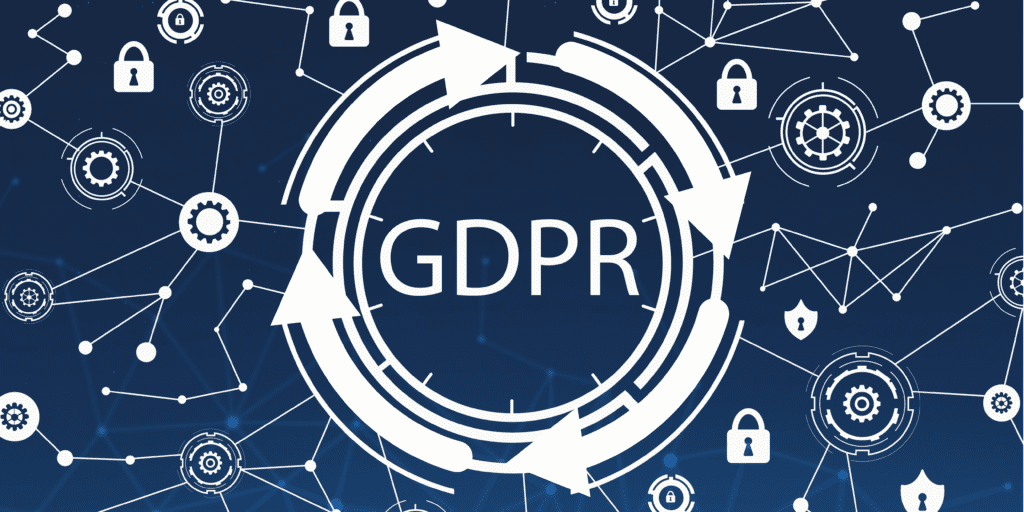In today’s data-driven landscape, the use of AI-based solutions, such as ChatGPT, has become increasingly prevalent. These solutions leverage the power of artificial intelligence to analyze data, generate insights, and facilitate interactions with users. However, with the rise of AI technologies, it is crucial to consider the implications for data protection and privacy, particularly in the context of the General Data Protection Regulation (GDPR).
The GDPR sets out guidelines and regulations to safeguard the fundamental rights and freedoms of individuals regarding the processing of their personal data. The regulation applies to any organization that handles personal data of individuals resident in the European Union, regardless of its location. It places an emphasis on ensuring transparency, lawful processing, data subject rights, and appropriate security measures when dealing with personal data.
When it comes to LLM-based solutions, GDPR compliance is of paramount importance throughout the entire life cycle. Let’s dive deeper into each implementation stage to understand the implications:
Prep Work: As a first step, organizations should consider conducting data protection impact assessments (DPIAs) to identify and address any potential risks associated with the deployment of their solution.
Training: During the training stage, the ChatGPT model is exposed to various data sets to learn and generate responses. This process may involve the use of personal data, such as text inputs from users or customer interactions. To comply with the GDPR, organizations must ensure they have a legitimate basis for processing personal data, such as obtaining user consent or demonstrating a legitimate interest. Additionally, data minimization principles should be followed, ensuring that only relevant and necessary personal data is used for training purposes.
Validation: The validation stage assesses the performance and accuracy of the LLM model. It may involve using real-world data that reflect the current processing activities, and this data may be different from the training data. Organizations must ensure that any personal data used for validation is handled in compliance with the GDPR. This includes implementing appropriate data anonymization or pseudonymization techniques to protect individual privacy and ensuring that any third-party involvement in the validation process adheres to data protection regulations.
Deployment: When deploying an LLM-based solution to third parties, there are potential risks of data disclosure and privacy infringement with regard to the data the model was trained on. Some solutions may even contain examples of the training data embedded in the model logic. Organizations must assess and mitigate these risks to comply with the GDPR. Measures should be in place to protect personal data within the deployed model and prevent unauthorized access or misuse.
Operation: The operational activities of an LLM-based solution may involve various forms of personal data processing, requiring adherence to GDPR principles. These activities include:
- Inference: When the LLM model uses data from individuals or third parties to generate responses or make inferences, e.g., predict future behaviour or intentions, organizations must ensure that the processing activities comply with GDPR requirements. This includes informing data subjects about the processing, providing options for consent, and implementing measures to secure and protect the data involved.
- Decision-making: Any decision made by the LLM-based solution that affects an individual is considered personal data processing under GDPR. Organizations must ensure that decisions made by the solution are fair, transparent, and that the organization can be held accountable. Data subjects should be provided with clear information about the decision-making process and their rights to challenge or seek explanation for automated decisions.
- Evolution: As the LLM solution evolves and learns from data subjects, organizations need to handle personal data in compliance with GDPR. They must be mindful of the fact that the initial consent provided may not cover a new use of the data. Fine-tuning the model using data from individuals may thus require obtaining additional consent or the ability to demonstrate legitimate interests. Organizations must of course also be transparent about the new data usage and provide mechanisms for data subjects to exercise their rights, such as data erasure or rectification in instances where the individual does not consent to the new use.
- Removal: When discontinuing the LLM service, organizations must ensure the proper removal of personal data. This includes not only deleting data from their systems but also ensuring that any distributed or centralized copies of the data are also erased. Organizations should have mechanisms in place to facilitate data portability if the data subject so requests.
OpenAI and its partner Microsoft have developed privacy-preserving solutions to aid businesses with GDPR compliance. For a deep dive into the available offerings and their security features, see our blog post OpenAI vs. Azure OpenAI Services.
Conclusion
While AI-based solutions like LLMs offer tremendous opportunities for innovation and user engagement, organizations must navigate the complex landscape of data protection regulations. GDPR compliance throughout the stages of an LLM-based solution is not only a legal requirement but also an ethical responsibility. By prioritizing privacy, organizations can ensure that individuals’ rights are respected, fostering trust, and enabling the responsible and beneficial use of AI in our increasingly connected world.
A leap forward in your data protection efforts can be made by using PrivateGPT, Private AI’s tool that filters out personal information before it is submitted to the LLM and then replaces the PII in the response for a seamless user experience. This solution facilitates GDPR compliance every step of the way, allowing organizations to interact safely with LLMs. Try it free today!



